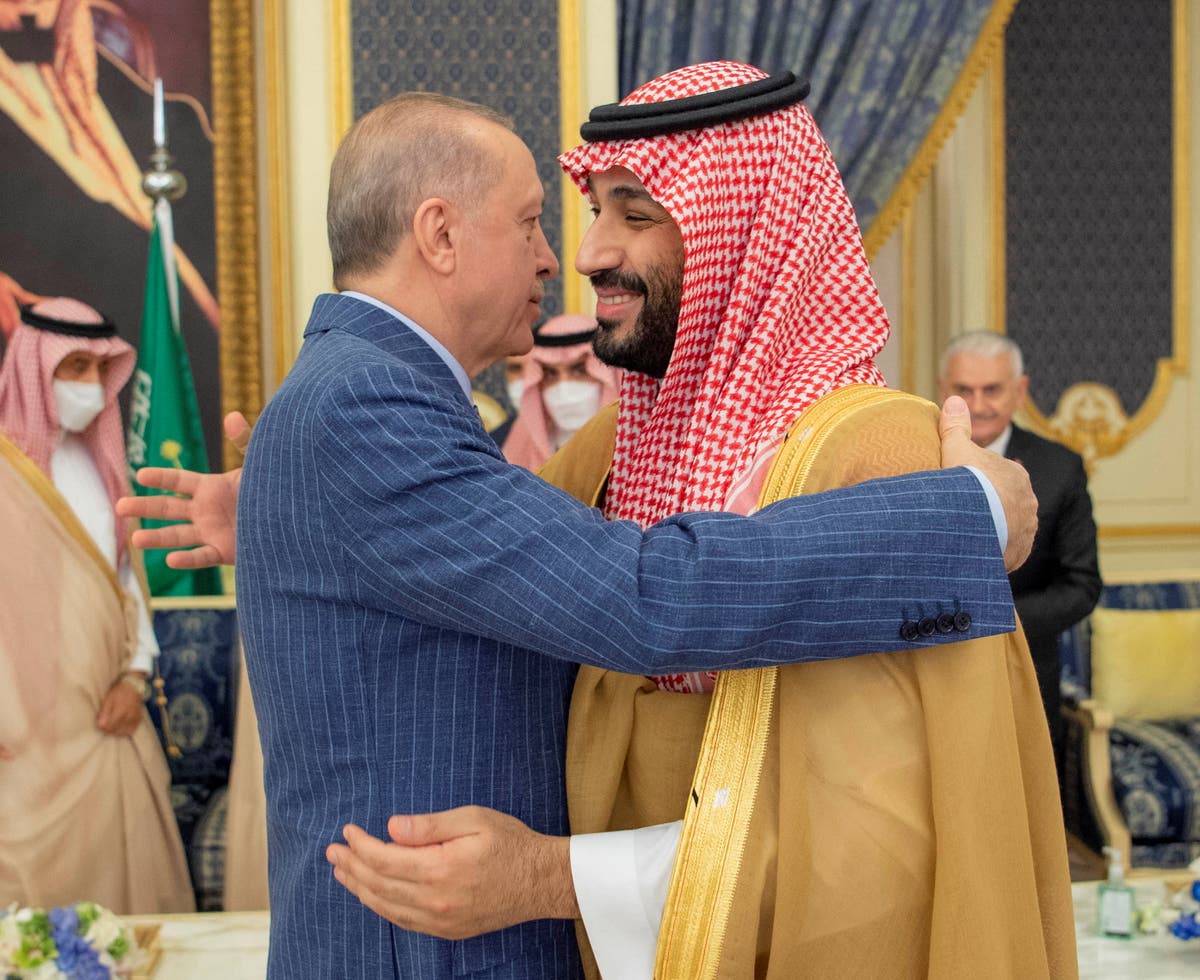
Not so long ago, Turkish president Recep Tayyip Erdogan publicly accused Crown Prince Mohammed bin Salman of ordering the gruesome murder of Washington Post columnist Jamal Khashoggi in Istanbul.
The Saudi crown prince, in turn had called Mr Erdogan a “dangerous Islamist” in conversations with former US president Donald Trump’s son-in-law and de facto Gulf emissary Jared Kushner, according to accounts published by American media.
But the years have passed, and the prosecution of Khasoggi’s killers has been suspended. Billions of dollars in potential trade hang in the balance. On Friday, Mr Erdogan wrapped up a two-day trip to Saudi Arabia to break the ice with both the prince, whom he publicly embraced, and his father, King Salman.
The meeting amounted to a full rapprochement between Turkey and the Arab Gulf states after a decade of ideological rifts and proxy wars.
“We believe enhancing cooperation in areas including defence and finance is in our mutual interest,” Mr Erdogan said before departing for Jeddah.
“I believe we will move our relations in every field further than they were in the past,” Mr Erdogan wrote later on Twitter, sharing a photo of himself and the crown prince.
“As two brotherly countries with historical, cultural and human ties, we are striving to increase all kinds of political, military and economic relations between us and to start a new era.”
The high-profile visit by Mr Erdogan to the coastal city of Jeddah followed Turkey’s decision to suspend the in absentia trial of 26 Saudi nationals charged in the killing of Mr Khashoggi.
The 59-year-old was kidnapped, murdered and dismembered at the hands of Saudi operatives who lured him to the kingdom’s Istanbul consulate in 2018. His body has yet to be located. The case sparked international outrage and turned Prince Mohammed into a pariah.
Human rights activists widely condemned Turkey’s decision to halt the trial. Michael Page, deputy Middle East director at Human Rights Watch, said the move “would end any possibility of justice for him, and would reinforce Saudi authorities’ apparent belief that they can get away with murder”.
But analysts say a widely shared sense in the Middle East that the US was withdrawing from its role as a regional power is the main driver behind the flurry of diplomatic endeavours, which include UAE outreach to Syria and ongoing Iraq-hosted talks between rivals Iran and Saudi Arabia.
Tayyip Erdogan and Saudi King Salman bin Abdulazizin during their meeting in Saudi Arabia’s Red Sea coastal city of Jeddah (Turkish Presidential Press Service)
“Countries are frustrated with the US in particular and western countries in general and want to establish alternative networks,” said Selim Koru, an analyst at the Economic Policy Research Foundation of Turkey.
Mr Erdogan’s trip included a visit to the shrine of the Prophet Mohammed in Mecca, the holiest site in the Muslim world. It was the first official state visit by Turkey to Saudi Arabia in nearly five years.
Turkey’s president has long behaved with deference toward King Salman but has struggled to mask his contempt for his 36-year-old son and designated heir. Still the two appeared together and shook hands. The official Saudi Press Agency reported that Mr Erdogan and Prince Mohammed “reviewed the Saudi-Turkish relations and ways to develop them in all fields”.
The meeting in Jeddah follows an ongoing Istanbul conference this week between the UAE’s ministry of economy and Turkey’s ministry of trade.
Relations between Turkey and the UAE had plummeted as they found themselves on the opposite sides of civil war in Libya, and squared off over their vision for the Middle East. But Mr Erdogan and Crown Prince Mohammed bin Zayed met in Ankara last year in an effort to patch up differences and boost trade ties. Mr Erdogan reciprocated with a visit to the UAE in February.
Since the accusations over the Khashoggi murder, Saudi businesses imposed an informal boycott of Turkish products and imports sank to a new low last year.
“Turkey needs access to Gulf markets,” said Mr Koru. “Turkish traders were already smuggling goods, stamping them ‘made in UAE’ and then exporting them to Saudi.”







